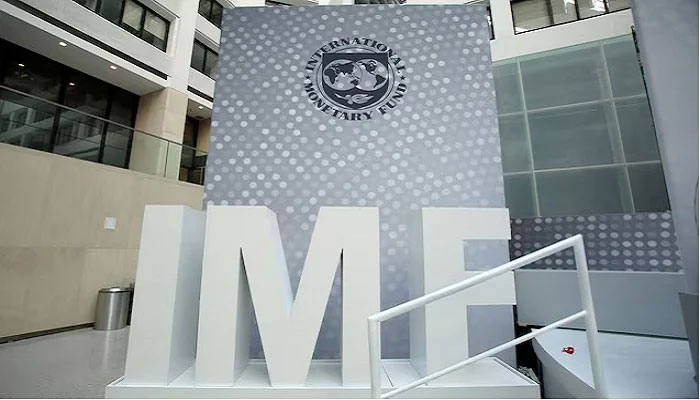Correcting course
IMF team will probably press the government for a mini-budget
It has been less than two months since the IMF sent Pakistan’s economy a $7 billion lifeboat and the country is already showing signs of falling back into the water. In the aftermath of major ‘deviations’ from performance targets related to the macroeconomic and fiscal framework agreed with the IMF under the $7 billion Extended Fund Facility (EFF), the multilateral lender has decided to send its ‘SOS’ mission to Islamabad next week to press for course correction. This abrupt visit is not a part of the first review under the EFF, which will take place no earlier than the first quarter of 2025. One can name this urgent drop-in from the country’s chief economic patron what they will, but it is clear that Pakistan’s progress under its latest IMF programme is not going as planned. The FBR is facing a revenue shortfall of Rs189 billion in the first four months of the current fiscal year and the Pakistani authorities reportedly failed to convince the Fund about their intention of course correction through virtual meetings. And it is not just revenue collection targets that are not being met, with the Large-Scale Manufacturing sector posting growth of just 1.3 per cent against a target of 3.0 per cent.
The IMF team will probably press the government for a mini-budget and the former likely has few other options but to take additional revenue measures through enforcement steps and tax hikes or cut down expenditures to satisfy the IMF. This does not bode well for ordinary Pakistanis already struggling with painfully high utility bills, tariffs, generally high prices and stagnant incomes. The tax hikes and stricter enforcement measures passed in the June budget, while ratcheting up the pressure on some large businesses, have fallen most heavily on the salaried classes that have historically borne the brunt of the country’s tax burden. This comes amidst a large-scale exodus of skilled workers, with an estimated one million having left the country over the past three years alone. More depressingly, recent economic news such as the drop in inflation to the single digits and a historic rate cut by the SBP may have even created the impression that the economy was finally about to turn the corner. But Pakistan has been a chronic patient of the IMF for decades, with the country having taken more than 20 loans from the Fund since 1958. This ‘SOS’ visit is a sharp reminder that it will likely take a long-term process of monitoring and adjustments before the economy can stand on its own feet.
As for the immediate term, the country’s leaders have two very unattractive options before them: a mini-budget that hikes tax rates on different sectors or reducing expenditures to strike a balance. The former will not go down well with the people for the aforementioned reasons and may also end up having a dampening effect on the economy’s overall growth prospects. The latter might involve scrapping the kind of spending on public goods that Pakistan desperately needs. However, given that there is no clear alternative to the path set out by the IMF, the government will have to lead the country down one of these tough roads. Not doing so might have even more disastrous consequences. One can only hope that all the bitter medicine actually produces better health in the long run.
-
 50 Cent Super Bowl Ad Goes Viral
50 Cent Super Bowl Ad Goes Viral -
 'The Housemaid' Lifts Company's Profits: Here's How
'The Housemaid' Lifts Company's Profits: Here's How -
 Michael Douglas Recalls Director's Harsh Words Over 'Wall Street' Performance
Michael Douglas Recalls Director's Harsh Words Over 'Wall Street' Performance -
 Henry Czerny On Steve Martin Created Humor On 'Pink Panther' Set
Henry Czerny On Steve Martin Created Humor On 'Pink Panther' Set -
 Lady Victoria Hervey: Andrew Mountbatten-Windsor's Ex-girlfriend Proud Of Being On Epstein Files
Lady Victoria Hervey: Andrew Mountbatten-Windsor's Ex-girlfriend Proud Of Being On Epstein Files -
 Dolly Parton Created One Of Her Iconic Tracks With Acrylic Nails?
Dolly Parton Created One Of Her Iconic Tracks With Acrylic Nails? -
 Parents Alarmed As Teens Form Emotional Bonds With AI Companion Chatbots
Parents Alarmed As Teens Form Emotional Bonds With AI Companion Chatbots -
 Denzel Washington Surprises LeBron James
Denzel Washington Surprises LeBron James -
 Cillian Murphy's Hit Romantic Drama Exits Prime Video: Here's Why
Cillian Murphy's Hit Romantic Drama Exits Prime Video: Here's Why -
 Paris Hilton Reveals What Keeps Her Going In Crazy Schedule
Paris Hilton Reveals What Keeps Her Going In Crazy Schedule -
 Deep Freeze Returning To Northeastern United States This Weekend: 'Dangerous Conditions'
Deep Freeze Returning To Northeastern United States This Weekend: 'Dangerous Conditions' -
 Inside Dylan Efron's First 'awful' Date With Girlfriend Courtney King
Inside Dylan Efron's First 'awful' Date With Girlfriend Courtney King -
 'Sugar' Season 2: Colin Farrell Explains What Lies Ahead After THAT Plot Twist
'Sugar' Season 2: Colin Farrell Explains What Lies Ahead After THAT Plot Twist -
 ‘Revolting’ Sarah Ferguson Crosses One Line That’s Sealed Her Fate As Well As Andrew Mountbatten-Windsor’s
‘Revolting’ Sarah Ferguson Crosses One Line That’s Sealed Her Fate As Well As Andrew Mountbatten-Windsor’s -
 AI Rivalry Heats Up As Anthropic Targets OpenAI In Super Bowl Ad
AI Rivalry Heats Up As Anthropic Targets OpenAI In Super Bowl Ad -
 Kate Middleton, Prince William Share Message Ahead Of Major Clash
Kate Middleton, Prince William Share Message Ahead Of Major Clash




